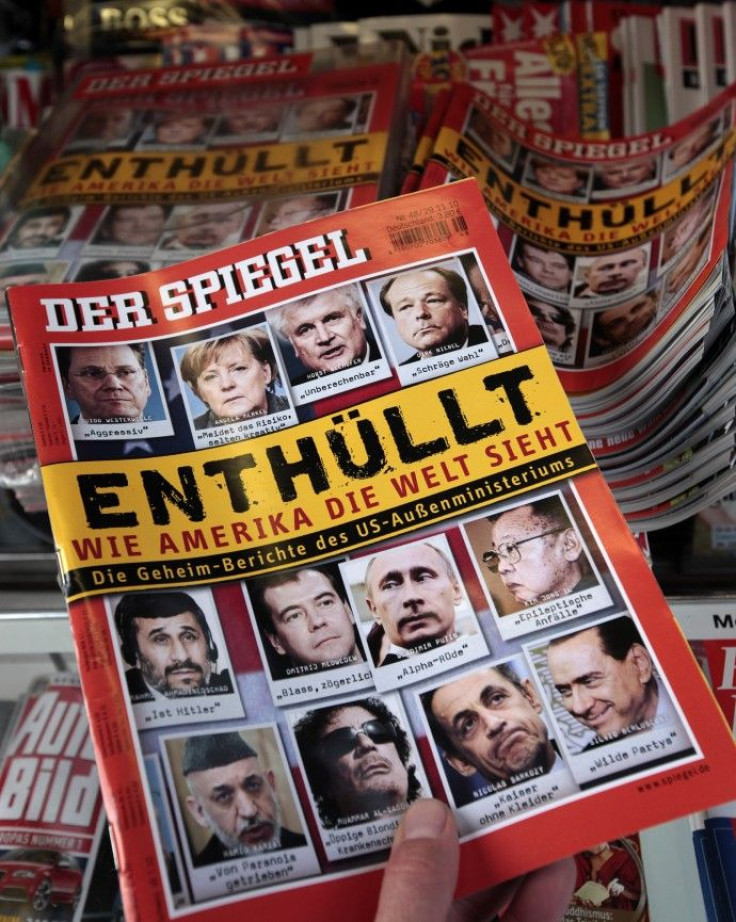World leaders react to Wikileaks disclosures

Berlusconi in Italy laughed it away, while Ahmadinejad in Tehran yet again blamed the United States. The Russians refused to comment and Indians breathed a sigh of relief. WikiLeaks, the whistle-blower website, revealed the vigor of US espionage, leaking out more than 250,000 U.S. diplomatic cables. The first batch of the documents leaked mentioned Saudi Arabia and other Arab states' desire to attack Iran, highly sensitive information on world leaders and US military strategy across the World. The following are reactions of the world leaders on what is seen as a historic leak of our times.
*Afghanistan - President Hamid Karzai (As told by spokesman for the Presidential office)
It won't have a noticeable effect on our broader strategic relationship with the U.S. There is not much in the documents to surprise us and we don't see anything substantive that will strain our relationship, but there is more still to come.
*Australia - Attorney-General Robert McClelland
The release of this information could prejudice the safety of people referred to in the documentation and indeed could be damaging to the national security interests of the United States and its allies including Australia.
I've asked the Australian Federal Police to look at the issue as to whether any Australian laws have been breached as a specific issue as well.
*China
As of Monday evening in Beijing, the WikiLeaks Cablegate page was blocked by China's Firewall. Chinese media ordered not to report anything on China-related Wikileaks.
*France - Government spokesman and Budget minister Francois Baroin
We are very supportive of the American administration in its efforts to avoid what not only damages countries' authority and the quality of their services, but also endangers men and women working to defend their country. (Europe 1 Radio)
*Iran - President Mahmoud Ahmadinejad
Let me first correct you. The material was not leaked, but rather released in an organized way. (Press TV)
*Israel - Prime Minister Binyamin Netanyahu
Israel has not been damaged at all by the WikiLeaks publications. The documents show many sources backing Israel's assessments, particularly of Iran.
*Israel - Opposition leader Tsipi Livni
It's clear that Iran is exploiting the Israeli-Palestinian conflict. (The Jerusalem Post)
*Italy - Prime Minister Silvio Berlusconi
Laughs, when told the content of the cables by senior government officials.
*Palestine: Saeb Erekat , close aide to Mahmoud Abbas, President of Palestinian Authority
There were never any actual consultations between us and the Israelis before the Gaza war. We knew about the war because the Israelis were saying there was going to be a war. (AP)
*Russia - Dmitry Peskov, Prime Minister Vladimir Vladimirovich Putin's spokesperson
No Comment.
The government will react to the remarks about Putin after verifying if Putin was really the intended target of the remarks.
*Turkey - Prime Minister Recep Tayyip Erdogan
Wikileaks credibility is questionable. That's why we're waiting to see what comes from Wikileaks. Then we can evaluate it and give an opinion.
*The United States - State Department (Hillary Clinton)
The state department postponed a press conference with secretary of state Hillary Clinton to Monday evening. White House directs officials to tighten information security.
*United Kingdom - Prime Minister David Cameron (as told to official spokesman)
Clearly we condemn the unauthorized release of classified information. The leaks and their publication are damaging to national security in the United States and in Britain, and elsewhere. It's important that governments are able to operate on the basis of confidentiality of information.
* Libya, South Africa, Zimbabwe
No comments received so far.
© Copyright IBTimes 2024. All rights reserved.











